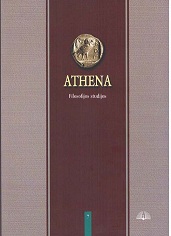Sociokultūrinės įžvalgos mokslo istorijos tekstuose, pasitelkus Vytauto Kavolio metodologiją: konkretus pavyzdys
Socio-Cultural Insights into the Texts of Science History based on the Methodology of Vytautas Kavolis: A Concrete Case
Author(s): Juozas Algimantas KrikštopaitisSubject(s): Philosophy
Published by: Lietuvos kultūros tyrimų
Keywords: Kavolis’ methodology; anthropology; Grotthuss; history and philosophy of science.
Summary/Abstract: The author of this article seeks to determine the possibilities of the sociologist Vytautas Kavolis’ methodology for analyses of case within the sphere of science history and the philosophy of science. For this purpose were chosen the programs used by Kavolis of the analysis of civilizations and the history of consciousness. Kavolis has broadened and deepened them by way of disclosing that they are more effective in the process of research when used together rather than separately. This combined research method helps to disclose what lies behind the horizon of historical facts and what meaningful content the method reveals. It was not accidental that the interpretations of resulting scientific development analysis, which appeared in the second half of the 19th century, attracted universal interest. These, by connecting the historical context with a philosophical reflection, gave meaning to science in human culture. Furthermore, it revealed that science was a phenomenon of culture. After evaluating the research program proposed by Kavolis, the author of this article became curious to apply it to analysis of a concrete object of history of science. The scientific activities of the renowned researcher Theodor von Grotthuss were selected for this purpose. They were analyzed, evaluating social, political and cultural situation of that time. During the research it was revealed that within the activities of this scientist several factors were decisive: a) a conflict with the elite of the country, b) the consequences of Napoleon’s military campaign on Moscow, c) the experience gained in Paris while working with the most prominent scientists of Europe, d) a chronic illness from birth. These factors forced the scientist to become a person separated from the scientific community and isolated from the society of his country. Unbearable physical and social work and living conditions compelled him to choose suicide. The accomplished analysis empirically confirmed the author’s assumption that Kavolis’ method can disclose different aspects of individual scientific activity and its dependence on socio-cultural context of that time.
Journal: Athena: filosofijos studijos
- Issue Year: 2011
- Issue No: 7
- Page Range: 182-193
- Page Count: 12
- Language: Lithuanian

